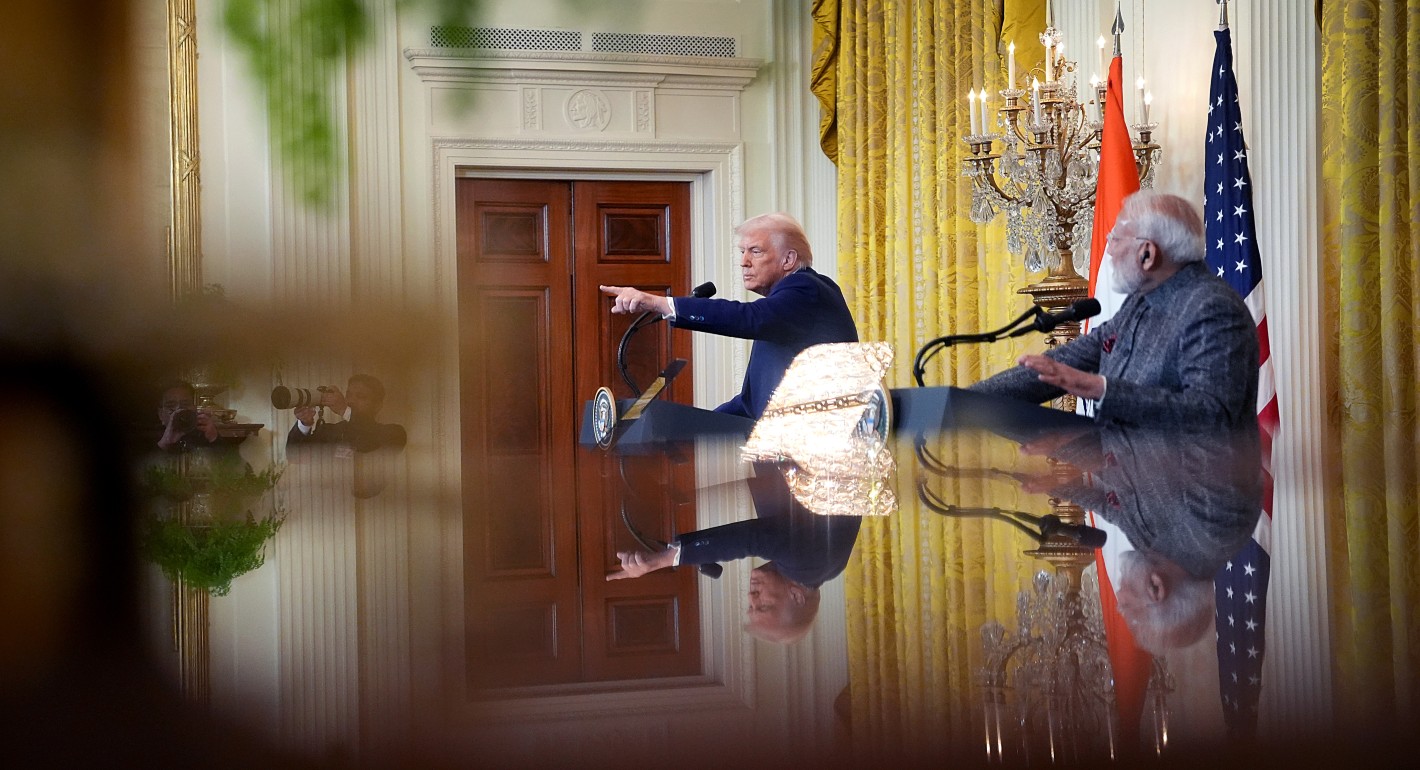Source: Carnegie
My name is John Audley, and I am senior associate and director of the Project on Trade, Equity, and Development, at the Carnegie Endowment for International Peace. We are a private, nonprofit organization dedicated to advancing cooperation between nations and promoting active international engagement by the United States. Founded in 1910, our work is nonpartisan and dedicated to achieving practical results. My testimony is shaped by over twelve years experience in trade and environmental policy, first as an advocate in the environmental community, then as a member of the U.S. interagency team responsible for developing and negotiating U.S. trade policy positions.
I am here today to convey my overall support for the environmental provisions in the U.S.-Singapore and U.S.-Chile Free Trade Agreements (FTAs), and to caution against using these agreement's environmental provisions as a model for all trade agreements, especially when dealing with U.S. trading partners with little capacity to protect the environment or promote public health.
Among other reasons, the Singapore and Chile FTAs are important because they are the first agreements to be considered by Congress under the Trade Act of 2002 (TPA). For the first time, Congress made the environment a principal negotiating objective, challenging the administration the executive branch to incorporate environmental provisions directly into trade agreements, and to strengthen our trading partner's capacity to protect the environment and human health.
With some important exceptions, Ambassador Zoellick's team followed TPA's environment instructions to the letter, in many instances, incorporating TPA language directly into the agreements themselves. The Chile FTA is an especially good example of two countries actively negotiating environment into the trade agreement. We can thank Chile for a number of important innovations, including a special roster of panel members to hear trade-related environmental disputes, and the creation of an Environmental Affairs Council. Chile also argued for the use of fines instead of punitive trade measures, dedicating the fines to efforts that improve environmental protection. One of our best hopes for effective inclusion of the environment into the Free Trade Area of the Americas (FTAA) is to encourage Chile to continue its efforts to work with other Latin American governments to develop their own agendas for environment and trade.
There are a number of shortcomings with the texts:
- From the input offered by many USTR advisors, it is clear that the balance between the rights of investors and regulatory authority has not yet been found. Advisors to USTR point out the lack of clarity regarding a number of legal phrases, and state and local governments continue to worry that trade disciplines will weaken their ability to govern.
- Negotiators have not created the appellate body as instructed by Congress. Instead, in both agreements the parties have agreed to review this question at a later date.
- And by not enabling affected citizens to formally question the enforcement of environmental laws to attract trade, the U.S. missed a great opportunity to deliver on its commitment to promote good governance. This outcome is unfortunate because, as I understand it, instructions to include such provisions were removed by the White House from the U.S. negotiation position with Chile.
Second, the Singapore and Chile FTA's relied upon a new approach to address environmental issues that run parallel to trade negotiations. Under the authority of the Department of State, the United States now negotiates Memoranda of Intention or Understanding (MOI, MOU) that create opportunities for governments and their citizens to discuss environmental issues of common interest. While the Singapore MOI has not yet been made public, the Chile-US side accord references important subjects like developing a pollutant release and transfer register, reducing mining pollution, and improving agricultural practices.
Congress should follow these parallel negotiations more closely, and ensure that initiates agreed to by the Parties are properly funded. This parallel approach to negotiations also creates a new opportunity to demystify trade negotiations by making them more transparent.
Third, U.S. trade negotiations have made providing technical assistance and capacity building to our trading partners a very high priority. While recent decisions to promote trade-related technical assistance taken by the United States represent important steps forward, U.S. officials must work hard to coordinate this trade-led technical assistance and capacity building efforts with technical assistance already underway. It is especially important that all technical assistance and capacity building efforts not be "captured" solely by the interests of promoting more trade, as in some instances more trade would be the wrong remedy for an outstanding environmental problem.
Congress could use the environmental review of trade agreement process to stay more fully informed of parallel negotiations and technical assistance needs. It should also expand membership in the Congressional Oversight Group to ensure that committees with jurisdiction over environmental protection and development assistance are properly represented.
Finally, the Chile and Singapore FTAs should not be used as a model for other negotiations, particularly when governments lack the capacity to protect their own environment. Without proper incentives, that require governments not to "fail to effectively enforce" their environmental laws, or to "ensure that its laws provide for high levels of environmental protection," or engage in good governance practices by establishing and maintaining effective avenues for public participation, are empty promises. Nowhere is this more apparent than in the negotiations with Central America.
Members of Congress should give Ambassador Zoellick clear instructions to promote the sale of "green product" exports from Central America into the U.S., collect and disseminate to the public pollution release and transfer information, agree to regular, independent studies of the environmental law enforcement, and grant citizens the same rights to participate in disputes as enjoyed by investors.











